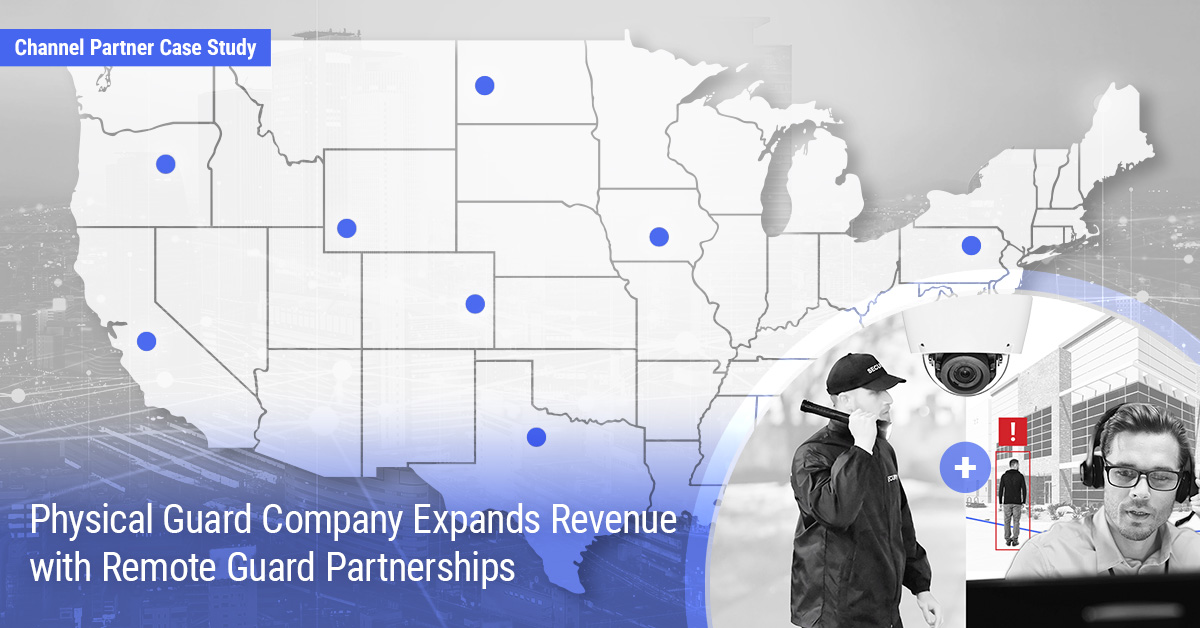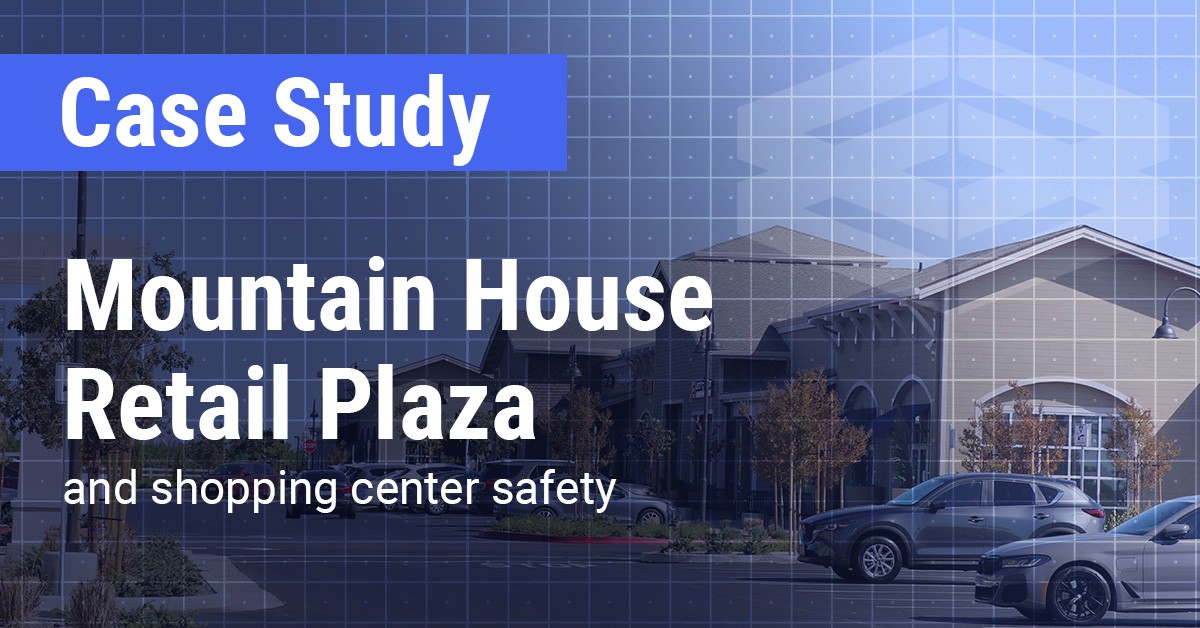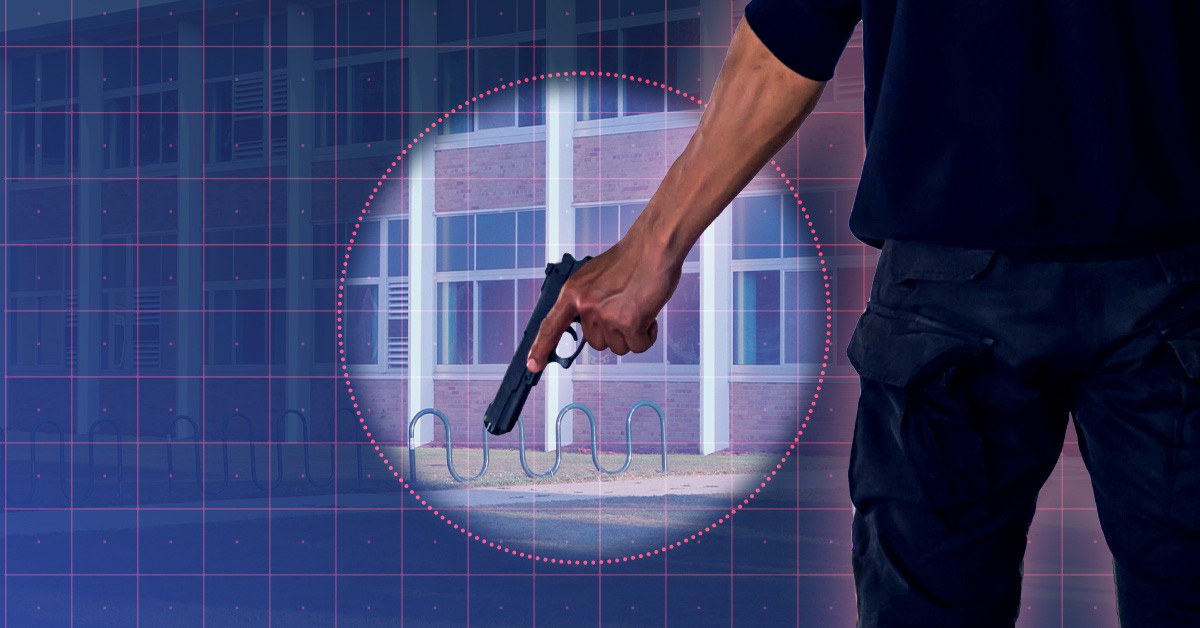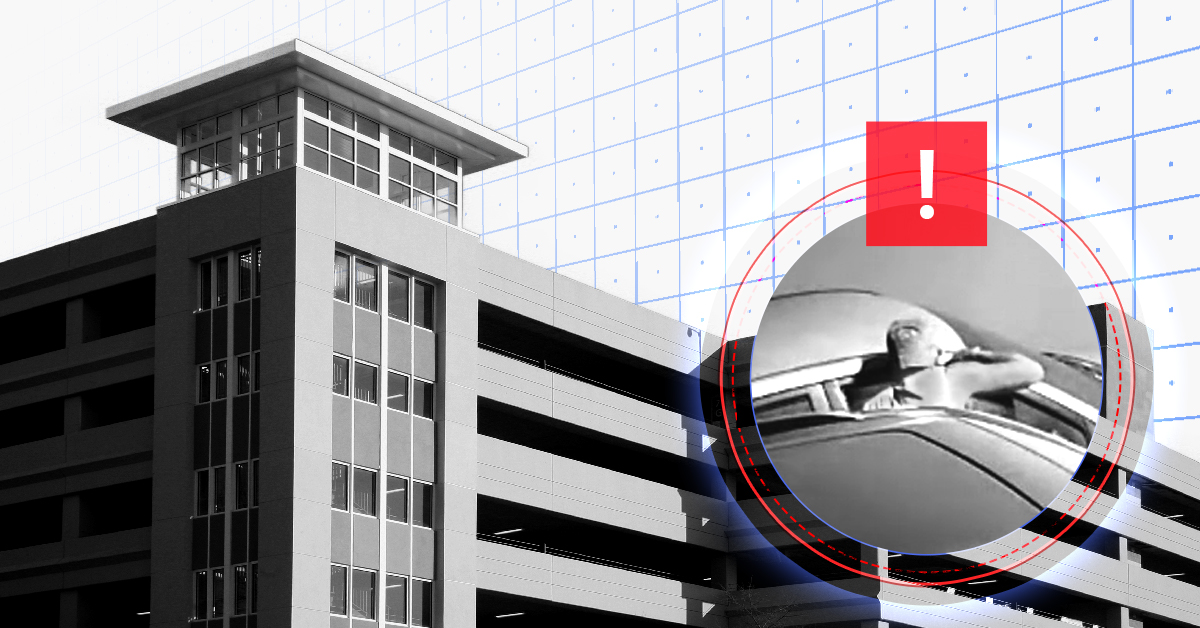
Parking lots and parking garages are a recurring security pain point for businesses and their customers that continuously defy traditional security efforts. The constant flow of traffic and turnover of customers makes it challenging to discern loiterers from wanted guests. The inherently sheltered design of covered/leveled parking structures creates nearly unlimited opportunities to hide unwanted behavior from watchful eyes. The cars themselves provide cover for those looking to steal, vandalize or even physically harm. Human security guards are not able to simultaneously watch every corner of the parking lot or garage and are subject to unavoidable human errors. Vandalism, burglaries, car theft, and assault are unfortunately so common in parking areas, it’s no surprise that parking lots and garages are the third most common location for serious crime (according to FBI statistics).
With new technology, there is a way that parking facilities for both commercial and residential properties can finally be kept safe with Edgeworth Security’s state of the art Remote Guarding.
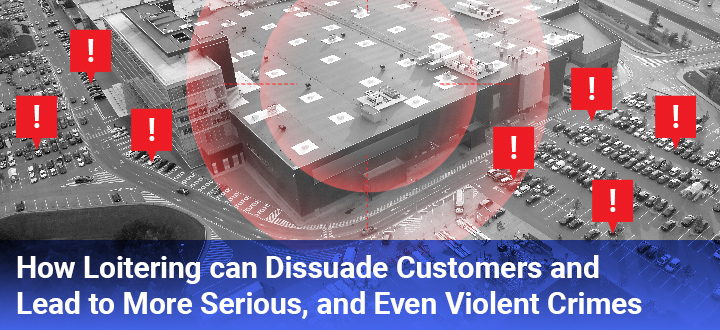
Especially for retail and multi-family businesses, so much investment is made to attract wanted visitors to shop, live and spend time at your property. When tenants, guests, and employees experience frequent loitering and trespassing in parking areas, they feel unsafe, decreasing the time they spend and dissuading them from coming again. Beyond this concern, loitering and trespassing, when not addressed, can also escalate to more serious crimes, putting the physical safety of people at risk.
We see this escalation happen when the allure of many cars in one location attracts would-be car thieves (who start out by loitering to assess the security of a parking facility) where there is a high likelihood of an innocent bystander, returning to their vehicle, happens upon them in the middle of their crimes. Additionally, when these criminals are not caught the first time they steal a car, many become emboldened and repeat the offence, often at the same parking facilities, increasing the chances of an escalation. Take these three examples of real crimes committed in parking structures:
- The first incident is of a Californian man charged with a series of vehicle burglaries. Spanning three months, he is suspected of burglarizing at least three different vehicles, all from various retail store parking lots.
- The second describes vehicles being stolen from two different retail parking lots in the Minneapolis area. The car thieves also broke into and stole from several other vehicles in the same parking lots. Police have general descriptions of the suspects, but have not been able to charge anyone yet.
- This third incident describes a group connected to a series of three dozen smash and grab car burglaries, spread over several Nashville hospital parking lots and Berry Hill apartment garages. These thefts happened in the middle of the day during rush hour, proving that existing security measures were not enough to stop the thieves. The criminals are still at large.
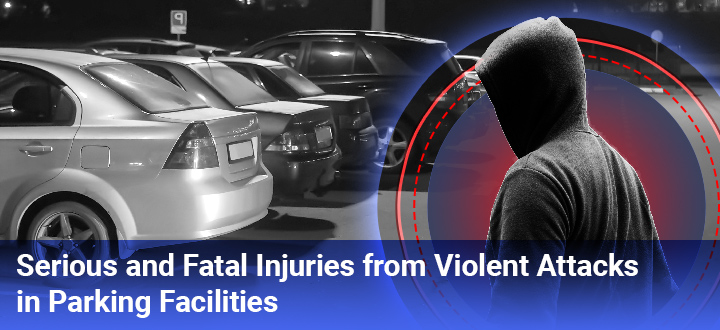
Even more important than property theft and damage, are the people placed at risk by ineffective traditional security measures. These three examples demonstrate what harm can happen when unwanted visitors/loiterers are not deterred as soon as they step onto the property:
- In New York, a man was charged with assault after dragging an elderly lady out of her car and beating her in a retail parking lot.
- In Boston, a shooting at the Mastlight Apartment complex is under investigation; one death was reported, along with three more people injured. The investigation is ongoing, and police are still searching for the culprit.
- In Milwaukee, a nurse practitioner getting off of work was attacked by a man that had been loitering several hours in the Froedtert Hospital parking garage. Sadly, she remained on the ground for several hours, unnoticed by the hospital’s security team. When she was finally discovered, she was immediately taken to the emergency room, where she was declared dead. It was later proven that the hospital had previously received and ignored several complaints about the safety of the building.
Had Edgeworth Security’s Remote Guarding been in place, these events might have been prevented. Edgeworth Security’s Remote Guarding monitors property 24/7 with state of the art technology including cameras with built in machine learning. When unusual or undesirable activity is detected on an Edgeworth-secured property, our live security agents receive digital alerts and immediately begin actively managing the incidents. Our highly trained agents determine what actions are needed to bring the incident to the best possible conclusion. If a live agent determines loitering, trespassing, or other illegal activity is indeed occurring, they issue a Voice Down command, informing the trespasser that they are being recorded and monitored. At that point 93% of incidents end with the unwanted person fleeing the property. In the few cases that criminals do not respond to the Voice Down command, our partnerships with law enforcement ensure a quick response from local agencies. Law enforcement agencies know that when they are called to an Edgeworth-secured property, the incident is not a false-alarm and has the video verification they require to act upon a call. Law enforcement is able to apprehend the suspect in 99% of these cases.
Here are some ways that Edgeworth Security can change the trajectory of crime:
- Not having to rely on fallible humans watching (or maybe not watching) cameras means that no matter what time of day or night, Remote Guarding will catch unwanted criminal activity and respond to it. In Nashville, the group of men walking around the parking lot would have been recognized as soon as they were tagged as behaving unusually for the area. The same is true for the single man in California, and the group in Minneapolis.
- In the Boston apartment shooting, the unusual activity that preceded the shooting would have been noted by Remote Guarding, possibly enabling the shooting from being prevented. Our live security agents would have then notified law enforcement, who may have been able to respond more quickly to the call and at least captured the criminals before they were able to flee. Remote Guarding would have also been able to provide critical evidence, and law enforcement would not have had to solely rely on eye-witness testimony to come forth and provide them with information.
- In Milwaukee, Edgeworth Security could have identified the man loitering hours before he had the chance to attack the woman, giving him a Voice Down command to immediately leave. If he had still refused to vacate the premises, our highly trained agents could have informed law enforcement of his trespassing and had him forcibly removed. It is possible Remote Guarding could have prevented the woman from being attacked in the first place, avoiding her needed assistance. In this case where she went unnoticed for hours, it shows how a medical emergency rendering her unconscious and in need of medical attention could just as easily gone unnoticed for hours. If a medical emergency such as a stroke or heart attack happened, Remote Guarding’s state of the art technology can also detect the unusual activity of a person lying on the ground and could have notified the hospital security team directly.
The many cases cited of unknown criminals at large, able to repeat their parking facilities crimes, would be drastically reduced with protection by Edgeworth Security.

Municipalities are moving to address the need for added safety regulations in parking facilities. Many city governments, like Milwaukee, WI, are responding to the growing volume of serious crimes with new security regulations for parking lot spaces, often requiring extensive planning and approval. Edgeworth Security can work together with companies to ensure that your security measures meet and exceed these requirements, tailoring a security solution for your properties’ individual needs.
Call Brian at (412) 334-1961 now to schedule a FREE demo and learn more about how Remote Guarding can protect your people, property, and assets from serious crime.


